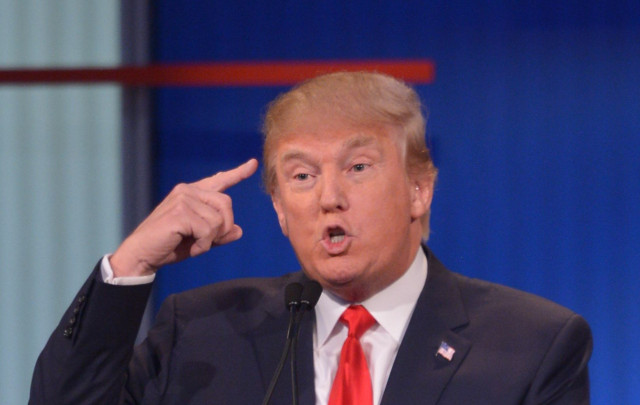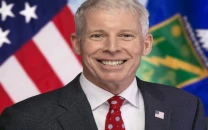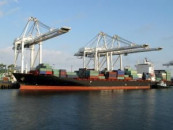Trump backs 'One China' policy in first call with Xi
The two leaders have extended invitations to meet in their respective countries

US President Donald Trump. PHOTO: AFP
In a phone call with China's leader, the US president agreed to "honor" a position that effectively acknowledges that Taiwan is not separate from China.
"President Trump agreed, at the request of President Xi, to honor our 'One China' policy," the White House said in a statement, adding that the two leaders had "extended invitations to meet in their respective countries."
The White House called the phone discussion – which came on the eve of Trump's slated meeting with Japanese Prime Minister Shinzo Abe - "extremely cordial," saying the leaders "look forward to further talks with very successful outcomes."
Trump's White House: Five takeaways from Wednesday
Xi, a nationalist who took the helm of the Communist Party-ruled country in 2012, welcomed Trump's gesture.
"Xi Jinping appreciates Trump's emphasis on the American government's commitment to the One China policy and pointed out that the One China principle is the political foundation of US-China relations," the official broadcaster CCTV reported.
Trump's insurgent campaign for the White House included frequently lashing out at China, which he accused of currency manipulation and stealing American jobs.
He raised eyebrows in the wake of his election victory with a protocol-busting telephone conversation with Taiwan's President Tsai Ing-wen.
Trump takes drugs for hair-loss, reveals physician
He later threw doubt on the "One China" policy, suggesting that it was up for negotiation and could form part of talks on trade, drawing rebukes from official Chinese media.
Taiwan has been ruled separately since the two sides split in 1949 at the end of a civil war.
Despite having its own government, military and independent foreign policy, Beijing has refused to recognise the island, viewing it as a troublesome province that will one day be reunited with the mainland - by force, if necessary.
Beijing will not do business with countries that recognise Taiwan diplomatically.
Trump to develop missile defense system against Iran, North Korea
Washington cut formal ties with Taipei in 1979, recognising the Communist mainland rulers in Beijing as the sole government of "One China".
However, Washington remains Taiwan's most powerful unofficial ally and main supplier of arms.
Trump's apparent refusal to accept this policy – which Beijing views as non-negotiable – had threatened to chill Washington's relations with the Asian giant.
While relations were strained under Barack Obama, there has been very little high-level interaction between the two countries since Trump came to power.
The White House said earlier this week that Trump had sent a letter to Xi, weeks after receiving a letter of congratulations from the leader of the Asian giant.
That was seen by observers as an attempt to break the ice.
Taiwan says it aims to keep strong ties with US, China
Taiwan will keep close contact and deepen its ties with the United States, the Presidential Office said Friday, in reaction to US President Donald Trump's phone call with China's leader in which he agreed to honour the "one China" policy.
"Taiwan and the US both maintain close contact and communication so as to keep a 'zero accident' approach (to the relationship)," Presidential Office spokesman Alex Huang said in a statement.
"Maintaining good Taiwan-US and cross-Strait relations (with China) fulfil our national interest and are key for regional peace and stability."



















COMMENTS
Comments are moderated and generally will be posted if they are on-topic and not abusive.
For more information, please see our Comments FAQ